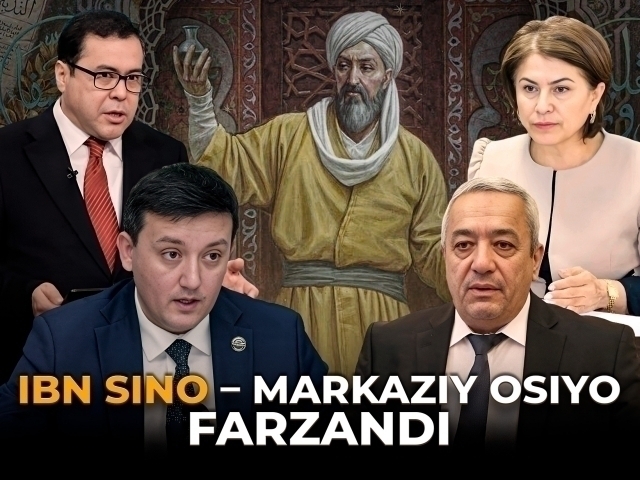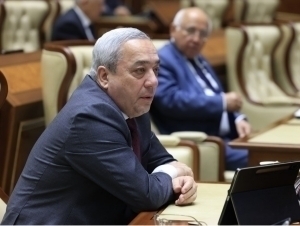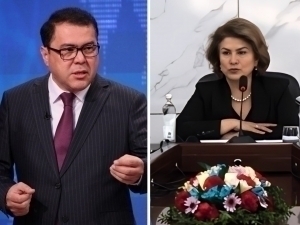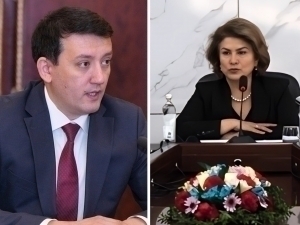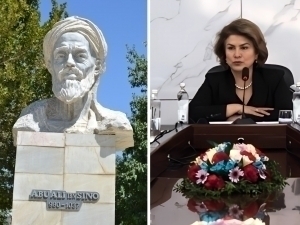Uzbekistan invites Central Asian scholars to Tashkent to “reach an agreement”
Review
−
28 January 2025 20038 6 minutes
The question of whether Abu Ali Ibn Sina was Tajik or Uzbek has ignited intense debate across Central Asia. The controversy arose after CNN published a series of articles referring to historical scholars such as Khorezmi, Ahmad Ferghani, Abu Raykhan Beruni, and Abu Ali Ibn Sina as Uzbek. Tajikistan’s Minister of Culture, Matlubakhon Sattoriyon, challenged this characterization, stating that Ibn Sina’s identity had been inaccurately presented.
“This is not the official position of a neighboring country but rather unfounded statements that may be inaccurate,” Sattoriyon said at a press conference.
She emphasized that Abu Ali Ibn Sina was a global intellectual whose legacy transcends national boundaries.
“His scientific contributions and philosophical works have played a crucial role in both Tajik and global scholarship for centuries,” she added.
The minister also expressed confidence that Tajik scholars would provide well-founded responses to those attempting to claim the region’s cultural and scientific heritage. She stressed the importance of an impartial approach to historical figures and urged international media to carefully verify historical claims.
Uzbek historian calls for scholarly consensus
In response to the debate, QALAMPIR.UZ sought the perspective of the Institute of History at the Academy of Sciences of Uzbekistan. The institute’s director, Academician Azamat Ziyo, called on politicians to refrain from interfering in historical discussions.

“Dear politicians, please do not interfere in our work as scholars. History is our field, and scientists should have the final say—through in-depth, primary source-based, and objective research,” he stated.
Ziyo, who has spent 40 years researching the history of the Turanian and Uzbek people, noted that historical records from the Timurid era describe the region’s population as consisting of “Turks and Tajiks,” but they do not specify the exact nationality of many scholars.
“In general, no written source explicitly states that Abdurakhman Jami was a Tajik, Abu Nasr Farabi was a Kazakh, Mahmud Kashgari was a Kyrgyz, or that Zahiriddin Muhammad Babur and Alisher Navoi were Uzbek. There is also no historical evidence identifying Ibn Sina’s nationality,” Ziyo said.
He pointed out that if nationality were determined solely based on the language of a scholar’s works, many figures from the region would be considered Arabs.
“If we look at online sources, we see that scholars such as Muhammad Khorezmi, Ahmad Ferghani, Ibn Sina, Abu Raykhan Beruni, and Mahmud Zamakhshari are often listed as Arab scholars or representatives of Arab and Islamic culture. Does this mean we should now make claims to 22 Arab states?” he remarked.
Ziyo stressed that instead of becoming entangled in divisive disputes, Central Asian nations should unite to protect their shared cultural and historical heritage.
Public figures weigh in: Ibn Sina as a symbol of regional unity
The controversy surrounding Ibn Sina’s identity has also sparked discussion among Uzbek public figures. Babur Bekmurodov, chairman of the nationwide movement "Yuksalish" and a deputy of the Oliy Majlis, urged a broader perspective.
“The legacy of great figures like Abu Ali Ibn Sina belongs to the entire region and the world,” Bekmurodov stated.
He emphasized that rather than engaging in disputes over historical figures, Central Asian nations should focus on pressing contemporary challenges.
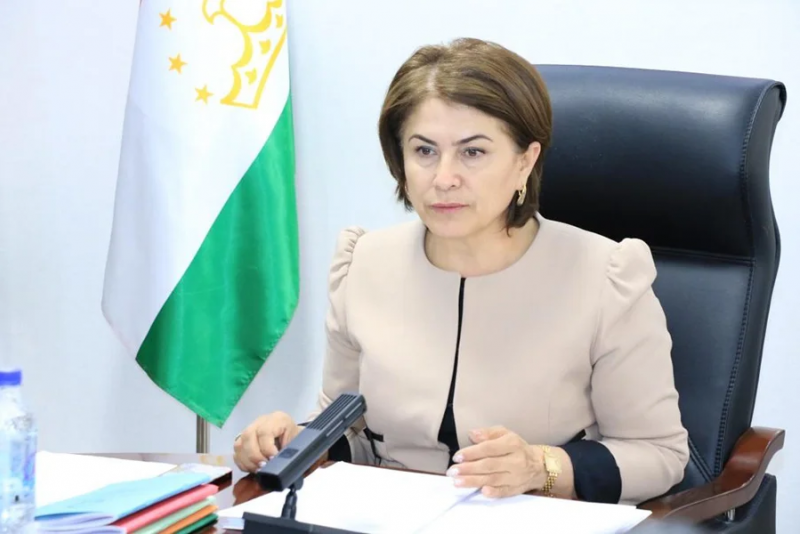
“Instead of saying ‘this is yours’ or ‘this is mine,’ we should turn our attention to real social, political, and economic issues that impact our future,” he wrote.
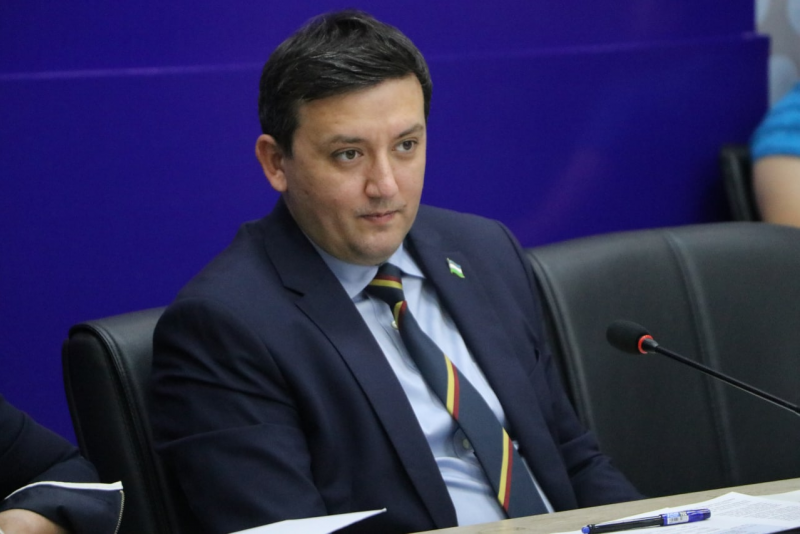
Bekmurodov highlighted pressing concerns such as climate change, economic stability, and security, stressing the need for regional cooperation to address them.
“We must follow the path of mutual respect, trust, and shared prosperity,” he added.
Sherzodkhon Kudratkhuja, rector of the Uzbekistan University of Journalism and Mass Communications, also weighed in on the debate. Writing on his Facebook page, he emphasized that Central Asian nations should present a unified voice, particularly at a time when regional borders are opening and cooperation is expanding in all sectors.
“In the 9th-10th centuries, there was no Uzbekistan, Kazakhstan, Tajikistan, or Kyrgyzstan. What existed was a rich, interconnected cultural and intellectual space. Instead of division, we should embrace our shared history and collective progress,” Kudratkhuja wrote.
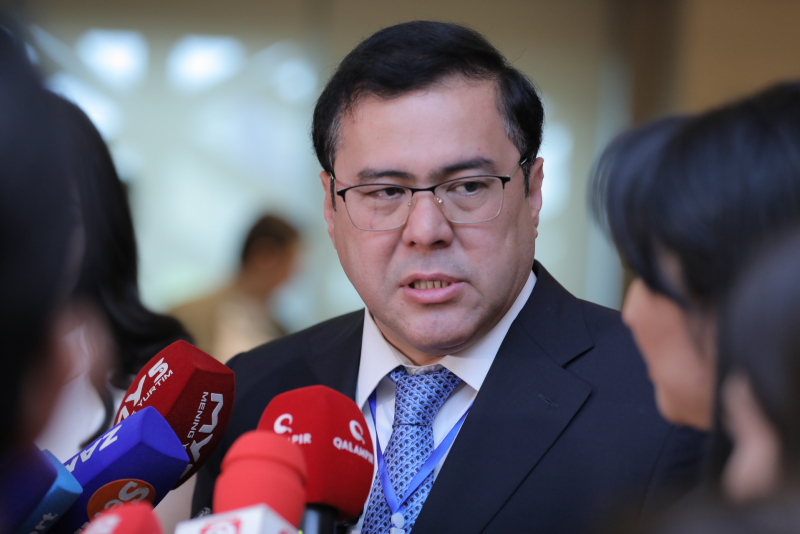
Kudratkhodja further highlighted that one of the key factors behind the flourishing of science and enlightenment during the Renaissance period was the intellectual freedom within a unified geographical space in Central Asia.
“Abu Ali Ibn Sina, a renowned physician, philosopher, mathematician, and scientist, was born near Bukhara, in what is now Uzbekistan. Therefore, Ibn Sina should be considered a child of Central Asia,” he wrote.
He warned that such debates over nationality, however inappropriate they may be, could have negative consequences for bilateral relations and could be exploited by external forces for political gain.
“Since we share this vast region today, we should honor our ancestors who lived on the same land, without dividing great scholars who reached the pinnacle of science, literature, and enlightenment into ‘yours’ and ‘mine,’” Kudratkhuja stressed.
Call for regional integration and scholarly dialogue
It is important to recognize that the nationality of thinkers who lived centuries ago does not grant any nation a particular advantage. Instead, societies would benefit more by utilizing their knowledge, scientific heritage, and discoveries to improve humanity’s well-being.
Academician Azamat Ziyo reinforced this idea, urging politicians to focus on governance and leave historical discourse to scholars.
After all, Central Asia faces far more significant challenges, including economic integration, geopolitical pressures, territorial disputes, and ethnic and social divisions—factors that have hindered regional unity for over 30 years.
“Emphasizing the superiority of one nation over another, when we have shared the same rivers for centuries, only serves to create further division,” Ziyo noted.
For reference, Abu Ali Ibn Sina was born on June 18, 980, in the village of Afshana, near Bukhara, and passed away on August 16, 1037, in Hamadan, present-day Iran. His birthplace is now part of the Peshku district in Bukhara province, Uzbekistan.
Ibn Sina’s father, Abdullah, was originally from Balkh, a city that is now in Afghanistan.
Live
All